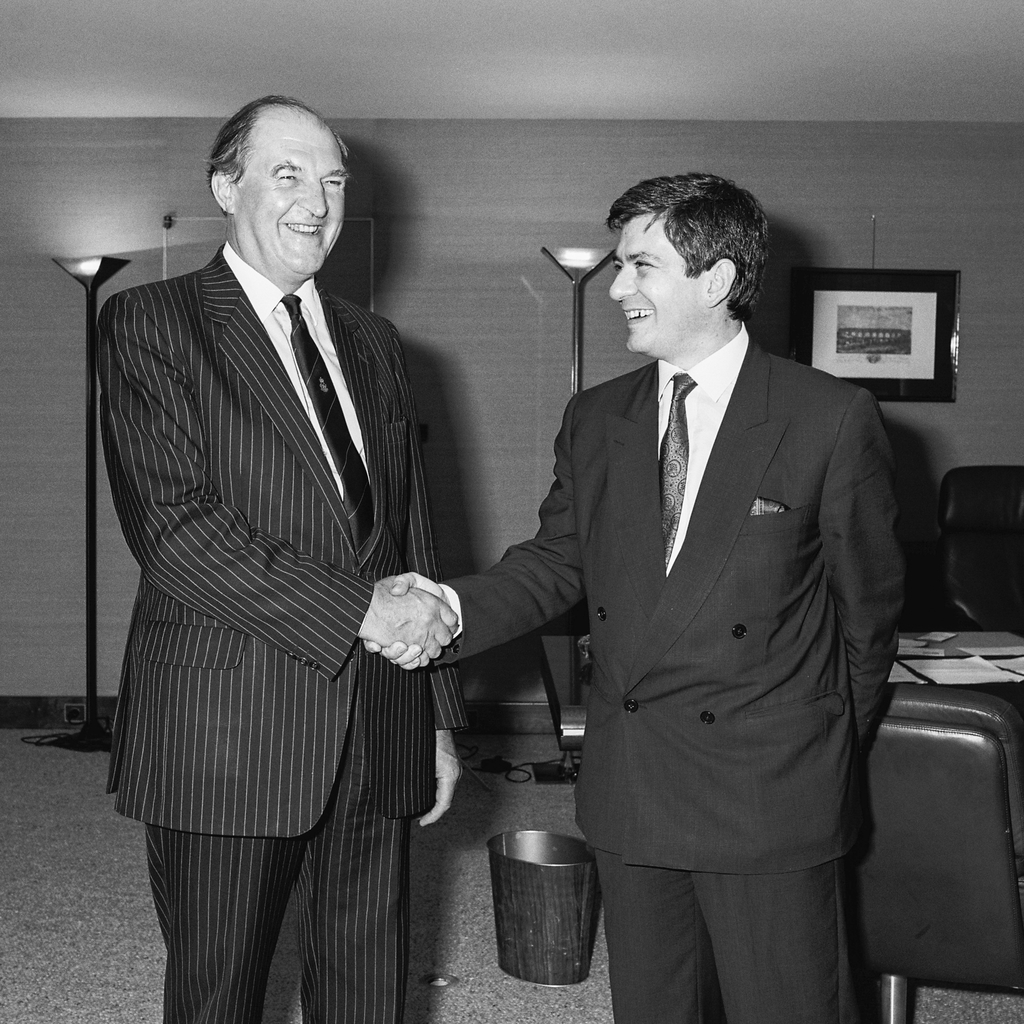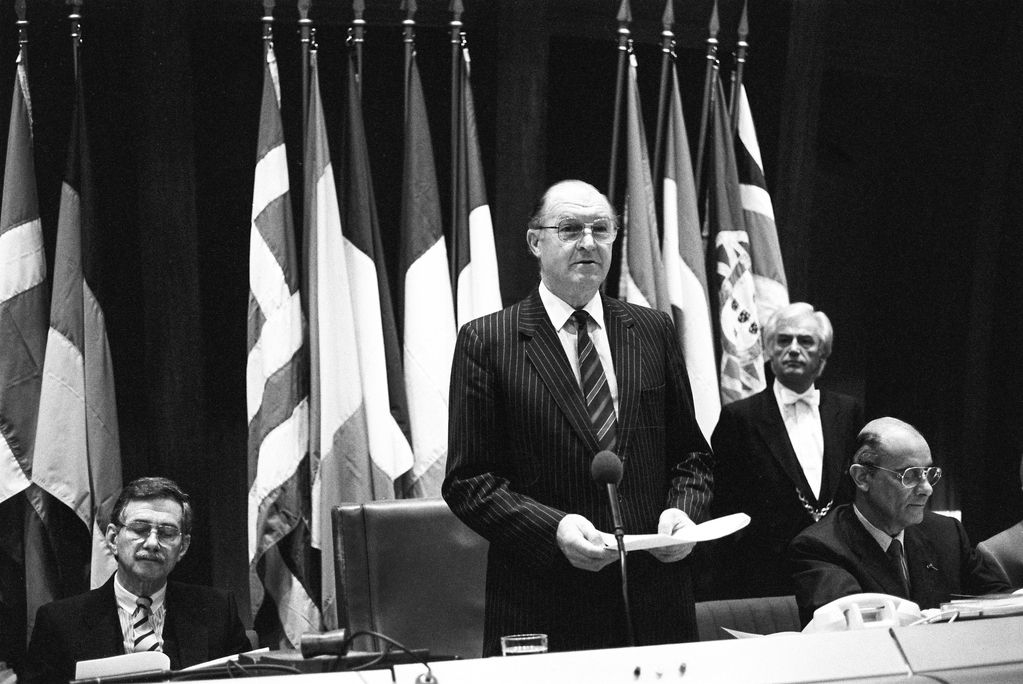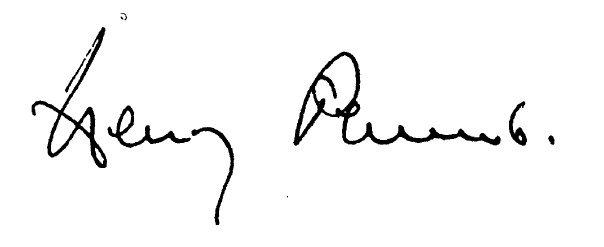Biography
Charles Henry Plumb was born in Warwickshire, United Kingdom, on 27 March 1925. He was a farmer and politician, titled the Baron of Coleshill in the County of Warwickshire. He held a number of honorary doctorates, including Honorary Doctorates of Science from the Cranfield Institute of Technology, the De Montfort University and the Silsoe College of Technology, an Honorary Doctor of Law from the University of Warwick and an Honorary Doctor of Philosophy from the University of Gloucestershire. He was also named an Honorary Member of the European Parliament and a Member of the House of Lords in the UK.
Lord Plumb passed away on 15 April 2022.
Political Posts Held
• 1964-1965: Vice-President of the National Farmers' Union of England and Wales (NFU)
• 1966-1969: Deputy President of the NFU
• 1970-1979: President of the NFU
• 1973: Knighted by Her Majesty Queen Elizabeth II
• 1975-1977: President of the Committee of Agricultural Organizations in the European Community (COPA)
• 1979-1982: President of the International Federation of Agricultural Producers
• 1979-1999: Member of the European Parliament for the Cotswolds
• 1979-1982: Chairman of the EP Committee of Agriculture of the EP
• 1982-1987: Chairman of the European Democratic Group
• 1987-1989: President of the European Parliament
• 1987-2000: Chairman, International Policy Council on Agriculture, Food & Trade (IPC)
• 1987: Became Baron of Coleshill in the County of Warwickshire
• 1994-1997: Vice-President of the European People's Party
• 1994-1997: Leader of the British Conservatives in the European Parliament
• 1994-1999: Co-President of the ACP/EU Joint Assembly
• 1999: Honorary Member of the European Parliament
• 2001-2006: Chairman of the Assembly of Former Members of the European Parliament
What's in the Archives
The archives of Lord Plumb's Office to date contain over 1,800 files with more than 14,900 items. These documents are arranged in files relating to specific procedures and in accordance with the various activities carried out during the President's term of office.
Public Figure
PE2 P2 100/PERS
This group of series is made up of seven series on subjects relating to the President as a public figure. The largest series are those relating to sponsorships and events, media image, defence of human rights and, lastly, exchanges with private individuals.
Presidency of Parliament
PE2 P2 200/PRES
This group of series is made up of eight series relating to the President's political duties.
The first series, 'Exercise of the presidency', refers to the president's activities during Strasbourg part-sessions and also with the Bureau and the enlarged Bureau. This series also reflects the various events and meetings that punctuated Lord Plumb's term of office, such as hearings and courtesy visits, receptions of prominent personalities and official visits. The four following series cover the President's various relations: interinstitutional (Council, Commission and other Community bodies), interparliamentary (Member States and third countries), external (Member States, third countries, international organisations, national political parties and trade unions, etc.), with the press, and with citizens (in particular requests for subsidies, appeals for the defence of human rights, and EP and Community activities).
The second-last series contains documents concerning relations with some of the European Parliament's political bodies such as the College of Quaestors, parliamentary committees and delegations, and political groups. The final series relates more specifically to the President's Office, chiefly from the point of view of its organisation, functioning, and mail (filed chronologically in terms of incoming and outgoing).
Secretariat of Parliament
PE2 P2 300/SECR
This group of series presents documents relating to the administrative and legal duties of the President's Office, i.e. its relations with the various directorates-general and the Legal Service. The largest series covers relations with the Legal Adviser, but also with directorates-general: DG Information and public relations, DG Administration, personnel and finance (in particular the series of 'Personal files', 'Job vacancies and filling vacant posts' and 'Protocol'), and, finally, DG Research and documentation.
Representation of staff and political groups
PE2 P2 400/CPGP
This final series contains the series concerning relations with the Staff Committee, the unions and, finally, the secretariat of the political groups.
Annex
Finally, a last, annexed collection relates to the World Food Conference (Brussels, 7-8 April 1988).
 The former EP President Lord Plumb (L) congratulates his newly elected colleague, Enrique Barón Crespo (R). © European Communities 1989
The former EP President Lord Plumb (L) congratulates his newly elected colleague, Enrique Barón Crespo (R). © European Communities 1989
 Plenary session in Strasbourg in November 1988 © European Communities 1988 – European Parliament
Plenary session in Strasbourg in November 1988 © European Communities 1988 – European Parliament
